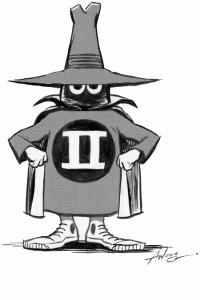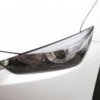Search the Community
Showing results for tags 'defense'.
-
https://asia.nikkei.com/static/vdata/infographics/china-spends-more-on-controlling-its-1-dot-4bn-people-than-on-defense/ China spends more on controlling its 1.4bn people than on defense Silencing dissent also nips innovation in the bud Aug. 29, 2022 It emerged in the central Chinese province of Henan in June that local authorities had abused an anti-COVID app to contain the movements of more than 1,300 people. Yang, who lives in Shandong Province, is one of them. On the morning of June 13, Yang arrived on a night train at his destination, Zhengzhou, the capital of Henan. As the train approached the station, he could not believe his eyes as his "health code" smartphone app turned red. In China, authorities track the location of citizens. If they are suspected of having come into contact with someone who has tested positive for COVID-19, their health code apps turn red and they face strict restrictions on their movements. Yang had no recollection of getting close to any infected person. But upon arrival at the station, he got another surprise: Officials told him he must leave Henan, and they took him away. Yang was visiting Henan to withdraw 230,000 yuan ($34,000) from a local bank. In Henan, multiple banks had refused to allow withdrawals since April, sparking a flood of protests by depositors. Local authorities feared that this would be viewed by the central government as a failure if the demonstrations spread. They rushed to cover up the inconvenient truth under the guise of the fight against COVID-19. Demonstrators holds up signs during a protest over the freezing of deposits by some rural-based banks, outside a People's Bank of China building in Zhengzhou, Henan. © Reuters China's zero-COVID policy of containing the virus through strict social controls has sent shock waves around the world. As President Xi Jinping's government pursues its policy of tolerating no infections, local governments across the country are going too far in tightening their stranglehold on ordinary people. On April 14, a video of a scuffle between police and residents of a housing complex protesting against an eviction notice in Shanghai, which was under lockdown, went viral on social media in China. As the residents shouted to police to leave the housing complex, police officers wearing white protective suits moved in en masse to detain them. Screams could be heard. Shanghai was locked down from the end of March, with 25 million residents banned from going out. Some were even forcibly evicted from their homes. Live videos of citizens suffering from food shortages or police behaving violently were posted on social media one after another, leaving authorities scrambling to delete them. A Shanghai sidewalk lies blocked due to discarded cartons believed to have been used for food rations. The street has been impassable since mid-May. © Kyodo But China's leadership under Xi did not waver. In May, it pledged to firmly fight any words and actions that question or reject the country's COVID-control policy and began to further increase its control over the internet. Once a state starts to move strongly in a given direction, it cannot stop easily by itself. According to a U.S.-China joint study published in the journal Nature Medicine, if China eases its zero-COVID policy, it will suffer a devastating blow because the effectiveness of the widely used Chinese-made vaccines is low. The study specifically warned that if China eases the policy, the number of people who show symptoms could rise to 112 million, and 1.6 million people could die in half a year. The Xi government's prestige is at stake. It cannot modify its COVID policy because it cannot let itself depend on vaccines made in Western nations. After taking the helm of the Communist Party as its general secretary in 2012, Xi launched a "zero tolerance" anti-corruption campaign. The move to try to do things perfectly has now spread to everything. The public security bureau of the Shanghai municipal government boasts high achievements. According to the bureau, the arrest rates in 2021 were 96% for burglaries such as sneak thefts and 100% for pickpocketing on subway trains. The bureau installed street cameras in all residential areas and commercial buildings by 2021, expanding the coverage of its surveillance system. The number of robbery cases in 2020 stood at 72, down a whopping 98% from the peak recorded in 2000. It is becoming more likely that the number will decline to zero. Although China is getting close to the ideal of a crime-free society thanks to technology, the price it must pay is by no means small. China's "public safety" spending, which is used to maintain public order and control speech at home, reached $210 billion in 2020. The amount more than doubled in 10 years. China's national defense spending is growing rapidly and closing in on that of the United States. But China's public safety spending was as much as 7% higher than its national defense spending in 2020. That is not all. Pent-up frustration among the public is growing further as the crackdown begins to grow excessive. The village of Wukan in Guangdong Province, once known as "Democracy Village," is now teeming with surveillance cameras. In China, a slang word making fun of police, meaning literally "a falling young man," has trended on social media since late June. It all started when a woman in her 40s and her father got into an argument with a male police officer in Dandong, in northeastern China's Liaoning Province. The woman and her father were stopped by the police officer on their way to a hospital. The officer cited the color of her health code as the reason. An argument broke out between them, and the woman was detained for 10 days on suspicion of obstruction of justice. A mocking video of the police officer, who pretended to have fallen during the confrontation, has gone viral. Public distrust of authorities has deepened due to the zero-COVID policy, and the fruits of people's frustration are being spread on the internet one after another. A vigorous and technologically innovative society can be created only where various opinions are allowed to clash. The more China tries to contain all differing opinions and control everything, the more it will also grow apart from the rest of the world. When the public reaction to this finally comes, "Great China" will find itself diminished. Patriotic reign blowing up in Hong Kong Government squeezes public opinion polls In April, yet another person who has supported Hong Kong's democracy left the city. On a flight bound for the U.K., Chung Kim-wah, a former assistant professor at the Hong Kong Polytechnic University, said in a Facebook post, "In the current Hong Kong, there is no room for sincere words, only lies." Chung had been summoned by police three times in connection with the polling organization where he worked, the Hong Kong Public Opinion Research Institute. He wrote on Facebook, "Hong Kong may no longer be a place to live without intimidation." The HKPORI was inaugurated with a research department at the University of Hong Kong as its parent. It has conducted highly reliable surveys that many Hong Kong researchers refer to. But its surveys have also sometimes reflected public opinion that China finds inconvenient. Since the Hong Kong national security law came into effect in the summer of 2020, pro-democracy media outlets, labor unions and other organizations have been forced to disband one after another. The institute is now rumored to be the next target. The Hong Kong newspaper Apple Daily, once a vocal critic of the Chinese Communist Party, has been forced to shut down. © Reuters The HKPORI conducted a survey ahead of the 2021 election for the Legislative Council, Hong Kong's lawmaking body. The survey asked Hong Kong people a multiple-choice question on how they would vote in the election. But the choice of "casting a blank vote" was criticized as "manipulating public opinion and destroying the electoral system." The institute's surveys about the zero-COVID policy and Russia's invasion of Ukraine were also seen as problems. Chinese government-affiliated media concluded that those surveys "lack a scientific basis" and that the institute "is suspected to be colluding with foreign forces." The environment surrounding opinion polls is becoming harsh. According to Tetsuro Kobayashi, an associate professor at City University of Hong Kong, some pollees do not answer political questions honestly, while some researchers refrain from asking sensitive questions. "Basic information such as the support rate for pro-democracy forces has become difficult to see, leading to [Hong Kong's] civil society shrinking," Kobayashi said. When lashing out at the institute, pro-China forces in Hong Kong frequently cite surveys by other organizations such as the Bauhinia Institute and OrangeNews. These surveys show completely different results from the HKPORI's surveys and Hong Kong citizens' actual feelings. For example, a survey by the HKPORI showed that only 32% of people in Hong Kong supported the zero-COVID policy, while as many as 57% were in favor of living with the virus. But a Bauhinia Institute survey said that 68% of people in Hong Kong supported the zero-COVID policy, while only 24% were in favor of living with the virus. It also said that as many as 76% replied that the national security law would not affect freedoms and rights in Hong Kong. Details on the Bauhinia Institute, which was established in 2016 by pro-China forces, are shrouded in mystery. An expert familiar with opinion polls said: "It seems to be conducting surveys using social networking sites popular with those born in China, such as WeChat. As sampling is unbalanced, decent researchers are not taking them seriously." Nikkei asked the Bauhinia Institute about its survey methods and relations with China. It did not answer directly, commenting only that it "serves Hong Kong and the state, unites patriots and supports the implementation of a better one country, two systems [formula] in Hong Kong. On July 1, Chinese President Xi Jinping visited Hong Kong for the first time in five years and implored "patriots governing Hong Kong" to be principled. © Reuters Xi recently made a trip to Hong Kong for the first time in five years, timed to coincide with the 25th anniversary on July 1 of the former British colony's return to Chinese rule. In a speech, Xi called for the thorough implementation of the principle of "patriots governing Hong Kong." He regards opinions differing from those of the Chinese leadership as impediments to policy implementation and shows no signs of a letup in the exclusion of pro-democracy forces. A government-affiliated Hong Kong newspaper published the results of a survey showing that as a result of Xi's speech, 77% of local citizens had deepened their confidence in the "one country, two systems" formula. China's propaganda campaign is becoming increasingly fierce. Robert Chung, the HKPORI's president and chief executive officer, pointed out that the question now is how to assess the direction of Hong Kong's society under the banner of science and democracy. Opinion polls are facing a new challenge, he added. If an authoritarian government continues to crack down on opposition forces, only voices supporting it come to be heard, and when the people finally vent their pent-up frustrations, it happens suddenly. This phenomenon is widely known. Hong Kong's "patriotic governance" seems to be incurring great risks as it attacks opinion polls, which are a "social thermometer," and closes its eyes to public opinion.
-
https://asia.nikkei.com/Politics/International-relations/Indo-Pacific/Kishida-Japan-to-fundamentally-strengthen-defense-in-5-years?utm_campaign=GL_JP_update&utm_medium=email&utm_source=NA_newsletter&utm_content=article_link&del_type=4&pub_date=20220611090000&seq_num=5&si=44594 Kishida: Japan to 'fundamentally' strengthen defense in 5 years At Shangri-La Dialogue, PM vows $2bn in Indo-Pacific aid for 'new era' of realism Japanese Prime Minister Fumio Kishida delivers the keynote speech to the Shangri-La Dialogue in Singapore on June 10. © Reuters TSUBASA SURUGA, Nikkei staff writerJune 10, 2022 22:32 JST SINGAPORE -- Japan will "fundamentally reinforce Japan's defense capabilities within the next five years," Prime Minister Fumio Kishida vowed in Singapore on Friday, delivering a keynote address to open the Shangri-La Dialogue security summit. Kishida pledged to "secure a substantial increase" in the country's defense budget to back this up, stressing that Japan has adopted a new type of "realism diplomacy for a new era." His more than 30-minute speech to the forum, where defense ministers and delegates from 42 countries are gathering, came in the shadow of Russia's invasion of Ukraine and as China's rise shifts the balance of power in the Indo-Pacific region. Kishida also promised to provide maritime aid to Indo-Pacific countries -- at least $2 billion over the next three years for maritime security equipment, including patrol vessels, and to support maritime transportation infrastructure. "We will strengthen our support to each country, utilizing cooperation of the Quad and frameworks of international organizations," he said, referring to Japan's loose security partnership with the U.S., Australia and India. In May, the Japanese leader had told visiting U.S. President Joe Biden in Tokyo that his government would reinforce Japan's defense capabilities and raise its budget. On Friday, Kishida pointed to the Ukraine war as part of the rationale for doing so. "I myself have a strong sense that Ukraine today may be the East Asia [of] tomorrow," he said. "I will seek to build a stable international order through dialogue, not confrontation," he promised. "At the same time, however, we must be prepared for the emergence of an entity that tramples on the peace and security of other countries by force or threat without honoring the rules." The groundwork for a defense buildup was laid on Tuesday, when the Japanese cabinet approved the first annual economic policy road map since Kishida took office last year. The blueprint for next fiscal year's budget said Japan aims to drastically increase its defense outlays over the next five years, without specifying exactly by how much. The road map did refer to the defense spending commitment made by NATO members -- 2% of gross domestic product. Japan currently spends close to 1% of its GDP. While Kishida highlighted the Ukraine war, and did not single out China by name, he alluded to longstanding concerns about Beijing's assertive behavior especially in the maritime domain. On the South China Sea -- where China has overlapping claims with several Southeast Asian countries -- Kishida said that international law and in particular the United Nations Convention on the Law of the Sea, along with arbitration decisions based on that convention, are not being "complied with." He went on to warn that "unilateral attempts to change the status quo by force in violation of international law are continuing." He also touched on tensions in the Taiwan Strait, saying that "peace and stability" in the waterway are "of extreme importance." Russia's invasion has raised fears of China one day trying to take Taiwan -- which it regards as a renegade province -- by force. Just ahead of Kishida's speech, the U.S. and Chinese defense chiefs had a face-to-face meeting in which they exchanged views on Taiwan. The Japanese destroyer Inazuma is pictured in the Indian Ocean in 2018: Tokyo intends to ramp up defense spending at a time of high regional tension. © Reuters In 2021, Japan's military spending was estimated at a record $54.1 billion, ranking ninth globally. The total came to less than a fifth of China's $293 billion, which ranked second behind only the U.S., at $801 billion, according to the Stockholm International Peace Research Institute. India came in third at $76.6 billion. Still, the rate of increase in Japanese defense spending was notably high, at 7.3% on the year. The government allocated an additional $7 billion to defense in a supplementary budget, resulting in the highest annual growth rate since 1972. Despite Kishida's insistence on adding muscle to Japan's forces, he also offered reassurance in his speech. "I stress that Japan's posture as a peace loving nation will remain unchanged," he said. "Our efforts will proceed within the scope of our constitution and in compliance with international law, in a manner that does not alter the basic roles and missions shared between Japan and U.S. under our alliance." The U.S. and Japan have traditionally divided their roles in their alliance as that of a "spear" and a "shield." Japan has focused on being the shield, or defending Japanese territory, while leaving all attack roles to the U.S. Some in Washington have been hoping that Japan might expand its role to that of a spear, however short that spear may be, to strengthen deterrence. Kishida's point that the "roles" will be unchanged is likely an attempt to ease fears that Japan may be speeding ahead too fast, ahead of the upper house elections next month. But his remarks could be met with disappointment stateside.
-
strange that taiwan never communicate with Google on area that need to be blocked out missile base on google map, use satellite mode with 3D to close up.
- 21 replies
-
- 4
-

-
- google map
- taiwan defense
-
(and 7 more)
Tagged with:
-
Man who stabbed BMW driver to death in viral road rage incident ruled to have acted in self-defense. A man who stabbed a BMW driver to death in a viral road rage incident last week in the Jiangsu city of Kunshan has been ruled to have acted in justifiable self-defense, a decision that has been the cause of celebration across the Chinese internet. The incident occurred at an intersection on Monday night at around 9:37 pm. Surveillance camera footage shows a BMW attempting to swerve into a bike-only lane ahead of a red light, bumping up against one cyclist who refuses to give way. Quickly, two passengers, one man and one woman, exit the car and approach the cyclist. The woman helps the cyclist, a 41-year-old man named Yu Haiming, move his electric bike to the sidewalk. After talking for a time, the two head back to the BMW. However, it’s then that the driver, a 36-year-old man named Liu Hailong, storms out of the vehicle and heads straight for Yu. Though the male passenger tries to hold him back, Liu continues to try to attack Yu. Eventually, Liu returns to his car and reemerges with a machete. This time, the passenger does not try to get in the way as Liu rushes at Yu and takes a number of swipes. Yu holds his ground long enough for the machete to get knocked out of Liu’s hand, falling on the road. The two men both scramble to pick up the weapon, however, it is Yu that gets to it first. With the machete in hand, Yu is able to throw Liu to the ground and stab once at his stomach. Liu then gets up and tries to run back to his car. Yu chases him, slashing at his opponent at least another four times. https://www.youtube.com/watch?v=Cn9_KCPfQPs https://shanghai.ist/2018/09/03/man-who-stabbed-bmw-driver-to-death-in-viral-road-rage-incident-ruled-to-have-acted-in-self-defense/ I say justified because it was unprovoked. Who goes around carrying a machete in the car too?
-
Please discuss all local defence related topics here but of course be mindful of the usual OSA limitations
- 88 replies
-
- Defense
- Development
-
(and 3 more)
Tagged with:
-
Finally not a ex-general nor ex-admiral but a lowly but highly decorated enlisted ex-Vietnam vet proposed to head a high profile post in the US government. Guess every dog has its day Interesting thing is like Robert Gates, Hagel is from the Republican Party though he is considered a sort of a rebel as some of his views contradicted his GOP colleagues. And of course his enemies in his own party will not let go of such a good chance to fire salvoes at him after Obama's recommendation. We will see how it pan out. May go the fate of Susan Rice... From CNA: http://www.channelnewsasia.com/stories/afp...1246625/1/.html Hagel draws fire as Obama's Pentagon pick Posted: 08 January 2013 1142 hrs WASHINGTON: US President Barack Obama named Chuck Hagel on Monday to lead the Pentagon, setting up an ugly confirmation battle as Republican opponents said he was too hard on Israel and too soft on Iran. Obama's choice of John Brennan to replace scandal-tainted David Petraeus as CIA chief was seen as more straightforward despite the counter-terrorism czar's defense of "enhanced interrogation techniques" and the US drone war. The second term revamp of the president's national security team was expected to win ultimate approval but several leading Republicans signaled they would make it tough for Hagel even though he is one of their own. Obama paid particular tribute to retiring Pentagon chief Leon Panetta before giving ringing endorsements to the "outstanding" Hagel and Brennan and urging the Senate not to dally in confirming their important appointments. "Chuck Hagel is the leader that our troops deserve. He is an American patriot," the president said, heaping praise on a war hero who was awarded two Purple Heart medals for his bravery as a soldier in Vietnam. "When Chuck was hit by shrapnel, his brother saved him. When his brother was injured by a mine, Chuck risked his life to pull him to safety. To this day, Chuck bears the scars -- and the shrapnel -- from the battles he fought in our name," Obama said. Some Republicans have never forgiven him for his outspoken criticism of ex-president George W. Bush's handling of the Iraq war, and his closeness to the Democratic president sees him regarded by others as a traitor. But Obama, who wants to be remembered as a leader who ended wars abroad to set about the tricky task of nation-building at home following a crippling recession, described Hagel as someone perfectly fitted to that mold. "Maybe most importantly, Chuck knows that war is not an abstraction. He understands that sending young Americans to fight and bleed in the dirt and mud, that's something we only do when it's absolutely necessary," he said. Administration appointments are often tense affairs in the United States as confirmation hearings provide senators with opportunities to turn away unwanted candidates or score cheap political points, or both. Hagel, 66, known for a fiercely independent streak and a tendency to speak bluntly, is expected to get particularly rough treatment due to his criticism of America's "Jewish lobby" and opposition to some Iran sanctions. Republican Senator Lindsey Graham said Hagel would be "the most antagonistic defense secretary towards the state of Israel in our nation's history." Another Republican senator, John Cornyn of Texas, said he would oppose the nomination, charging it would be the "worst possible message we could send to our friend Israel and the rest of our allies in the Middle East." But in an interview with The Lincoln Journal Star, a newspaper in his home state of Nebraska, Hagel hit back at his critics. There is "not one shred of evidence that I'm anti-Israeli, not one vote (of mine) that matters that hurt Israel," he said. If confirmed by the Senate, Hagel will have to manage major cuts to military spending while wrapping up the US war effort in Afghanistan and preparing for worst-case scenarios in Iran or Syria. Serving as an enlisted man who never joined the officer ranks, Hagel carries a particular empathy for the unheralded infantry "grunts" in the field. As he grapples with budget pressures, the former sergeant will likely try to shield frontline troops from the effect of spending cuts. In his typical straight-shooting fashion, Hagel has called the Defense Department "bloated" and said that "the Pentagon needs to be pared down." Obama, smarting from watching Susan Rice -- reportedly his first choice to succeed Hillary Clinton as secretary of state -- fold her bid in the face of Republican opposition, pressed hard for the Senate to approve Hagel. "He would be the first person of enlisted rank to serve as secretary of defense. One of the few secretaries who had been wounded in war and the first Vietnam veteran to lead the department," Obama said, calling his appointment "historic." Brennan, 57, may get an easier ride but is sure to face questions over his support for the use of certain "enhanced interrogation techniques" under the Bush administration and for his staunch defense of the US drone program. The 25-year Central Intelligence Agency veteran, an Arabic-speaking Middle East expert, replaces Petraeus, who resigned in November after confessing to an extramarital affair with his biographer Paula Broadwell. Obama highlighted what he called Brennan's incredible work ethic, saying "John is legendary even in the White House" and reminding everyone of a now-famous quote from August 2010. Asked if he got any down time or was all work and no play, Brennan replied: "I don't do down time." In a moment of levity at the White House event, the avuncular 74-year-old Panetta drew loud laughs when he said he would be retiring to his walnut farm and "dealing with a different set of nuts." - AFP/ac
-
Hi bros what would you reccomend for the above esp when going up north.
-
Hi guys, I've enrolled in a self-defense course called Krav Maga; used by the elite Israeli Commandos. You also see Krav Maga techniques used by Jason Bourne and Treadstone agents in the Bourne Identity, Supremacy & Ultimatum and also Liam Neeson in Taken. Yeah, it's cool sh!t but I learn it because it's effective (minimum time to learn with maximum results). Anyway, chk out Krav Maga's background here: http://en.wikipedia.org/wiki/Krav_maga My "sifu" is Master Lim Beng Kit. You can find a brief description of his background here: http://www.mamaster.com/masters_limbengkiat.php Yup, he's impressive, eh! His studio's at Kimly Building, New Industrial Road. Ok, the crunch is this. I need more guys in my Sat afternoon class so that we can train together. Anyone interested pls call Master Lim at 97778121 (say Ben recommended)... or can PM me for more info. Thanx. Hope to see more guys on Sat.
-
got play or played before? can try this one haha its a cuter version of those WC3 TDs http://www.breathe.sg/jimbodefence/ if u pass lvl 12 tell me how to build zz i keep dying there
-
Any ideas on the most practical means for self defense when confront by thugs at NSH R&R or when kanna carjacked? Since it is illegal in Singapore to import taser/stun guns/pepper sprays, etc. How about E2 Defender torchlight?
-
The first line of pothole defense is a properly inflated tire. Get a tire gauge and look up the proper tire pressure for your car in the owner's manual or on a sticker in the glove box or on the frame of the driver's side door. To get a true reading, tire pressure should be checked before the car is driven. Rolling down the road heats up the tire and increases the pressure. Don't rely on petrol station tire gauges


.png)











